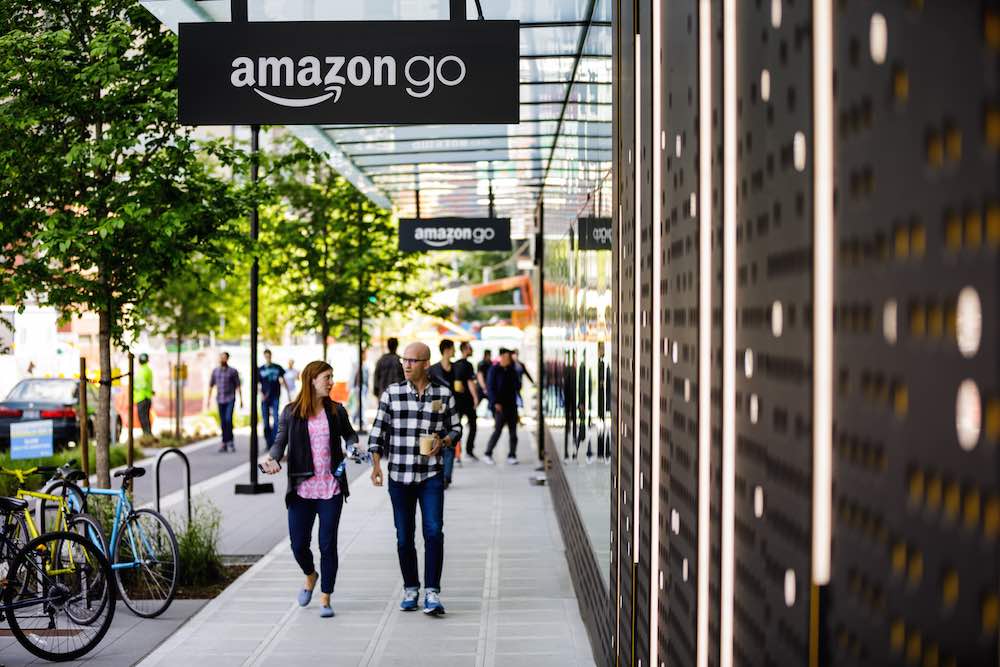In the wake of news Amazon is planning a second, U.S. headquarters, a group of Kansas City organizations is tossing Kansas City’s proverbial hat in the e-commerce giant’s shopping cart.
Amazon announced Thursday it plans to invest more than $5 billion in a new headquarters that could create as many as 50,000 jobs in which staffers would make $100,000 or more.
Landing such a headquarters has Kansas City leaders and economic development groups salivating — and for good reason. Between 2010 and 2016, Amazon said it estimates that its investments in the Seattle area resulted in an additional $38 billion to the city’s economy. The company claims that every dollar invested by Amazon in Seattle generated an additional $1.40 for the city’s economy overall.
Already, Kansas City Mayor Sly James, Kansas City Manager Troy Schulte, the Economic Development Corporation Kansas City, KC Tech Council and Kansas City Area Development Council are working together on a proposal, with the KCADC serving as the primary point of contact.
Tim Cowden, president and CEO of the KCADC, said that Kansas City is well positioned for the headquarters for several reasons. Kansas City’s central location, supportive tech and entrepreneurial community, deep talent pool and affordability are among the top reasons why Amazon should pick the area, Cowden said.
Those attributes seem to play well to Amazon’s demands. In its RFP, Amazon said it has a preference for:
- A metro area with more than one million people
- A stable and business-friendly environment
- Urban or suburban locations with the potential to attract and retain strong technical talent
- Communities that think big and creatively when considering locations and real estate options
Cowden said the KCADC is “already hard at work” to put the region in a spot to win.
“We have a legit shot,” he said. “The process for this RFI Response will not take the average route. It will require a uniquely creative and aggressive approach in technical workforce development, as well as space, city transit, financial incentives, educational assets, cultural amenities, air transportation and more.”
In addition to physical benefits from such a headquarters — like job opportunities, capital investment and new infrastructure — Kansas City would enjoy other intangibles, Cowden said. Amazon HQ2 would boost to Kansas City’s national status as a tech hub, increase the ability of other employers to attract top talent, attract other tech firms and likely improve education, workforce development and philanthropic investment, he said.
Cowden added his team is working closely on a comprehensive proposal with Ryan Weber, president of the KC Tech Council, and Drew Solomon, senior vice president of business development at the EDCKC.
Weber, whose organization focuses on growing the area tech scene, said Kansas City’s location is its top selling point.
“Kansas City has a robust tech industry and plenty of talent,” he said. “But our winning factor is our geographic location. We are the tech city in the center of all the other major tech cities.”
Kansas City needs to be confident it can win these types of projects, Weber said. The project plays into the strengths of the Kansas City community, and the area should be a compelling pitch to Amazon, he added.
“With 3,700 tech companies and some of the biggest names in tech already in our backyard, we have the perfect infrastructure for a distribution center, he said. “Amazon is the largest tech company out there, and I can’t think of a better place for them to build HQ2 than our home located at the center of the tech industry.”
Kansas City is already being singled out as a formidable contender in the competition. PCmag listed Kansas City as the top consideration for the new headquarters.
“Possibly the nation’s most underrated tech hub, Kansas City was one of the first Google Fiber markets and is home to Sprint,” the article reads. “The city has terrific internet connectivity, it has been nurturing tech startups in the Crossroads neighborhood, land is affordable, the airport has nonstop flights to all the right places, and the local government has a very pro-tech stance.”
The publication highlights, however, a glaring need for improvement: the airport.
“Kansas City’s primary downside is its lack of international flights. ‘Kansas City International Airport’ holds its title because of flights to Toronto and Cancun, which isn’t the globe-spanning range Amazon wants.”
Other top contenders mentioned in the PCmag piece include Dallas-Fort Worth, Minneapolis, Pittsburgh, Cincinnati and Charlotte.
The Kansas City area has until Oct. 19 to respond to Amazon.






































